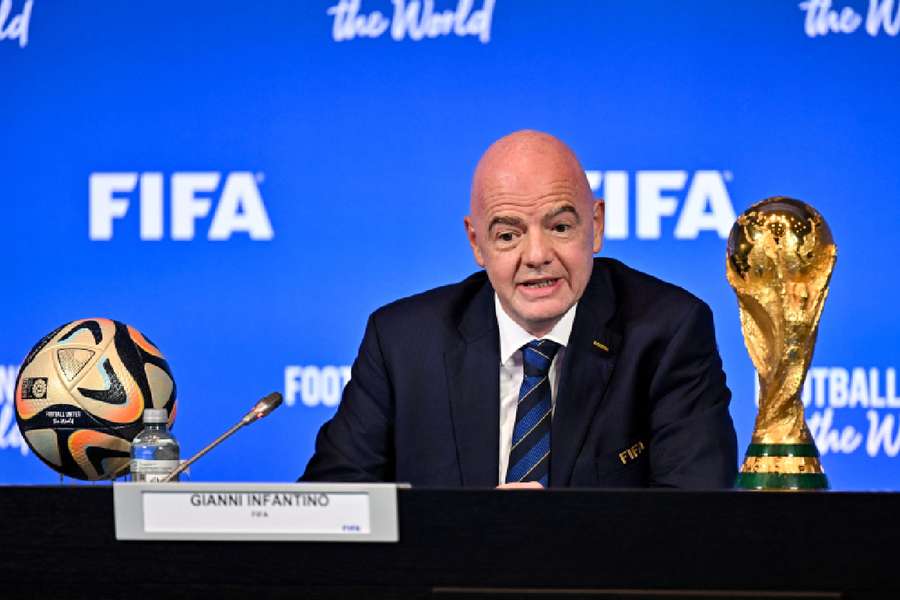On Wednesday FIFA announced that in recognition of the centenary, Uruguay, Argentina and Paraguay would each host a game in the 2030 edition that will be co-hosted by Morocco, Spain and Portugal.
In contrast to the little-noticed 1930 event, in 2030 billions of eyes, via technology unimaginable almost 100 years ago, will be focused on every minute of action.
Instead of 13 teams, almost a quarter of the world's countries will be in action after the expansion of the tournament to 48 teams for 2026.
And while most of the players of 1930 were amateurs, those taking to the field in 2030 will include some of the highest-paid and most recognisable sportsmen in the world.
For the modern fan it is almost impossible to visualise the 1930 World Cup. Even though international football had been in existence for almost 60 years, its reach was limited and cross-continent contests were relatively rare beyond the Olympic Games.
There was no qualification process for the 1930 tournament, instead, the entire world was invited.
Two months before kick off no European team had accepted, while England, outside FIFA at the time, considered such a contest below them and did not deign to enter until 1950.
Eventually, four were persuaded to make the long sea journey - Belgium, France, Yugoslavia and Romania. Siam, now Thailand, entered then withdrew and have never qualified since, as did Japan, who had to wait until 1998 to belatedly join the party.
Egypt were due to fly the flag for Africa but missed their connecting ship leaving an unwieldy 13 teams in the competition.
After an unexpectedly competitive group stage, both semi-finals were 6-1 thrashings as Argentina despatched the United States and Uruguay hammered Yugoslavia.
The U.S., one of three hosts of the 2026 tournament alongside Mexico and Canada, played much of their semi with nine men in days when substitutes were a distant dream.
After one violent assault on an American player, coach Jack Coll ran onto the pitch to remonstrate with the referee, famously tripped and smashed a bottle of chloroform.
Knocked out by the fumes, he was stretchered off alongside his injured player.
In the final Uruguay, who had claimed the previous two Olympic football titles which made them unofficial world champions at the time, beat their fierce Argentine rivals 4-2 in Estadio Centenario, which will host one of the three games in 2030.
They won it again in 1950 and have been punching above their weight football-wise ever since. Argentina eventually claimed their first victory in 1978 and added two more in 1986 and 2022 as an established footballing superpower.
Quite why Paraguay, who played in the first tournament but have reached the quarter-finals only once, have been given a match, and automatic qualification according to their federation president, FIFA has yet to explain.




